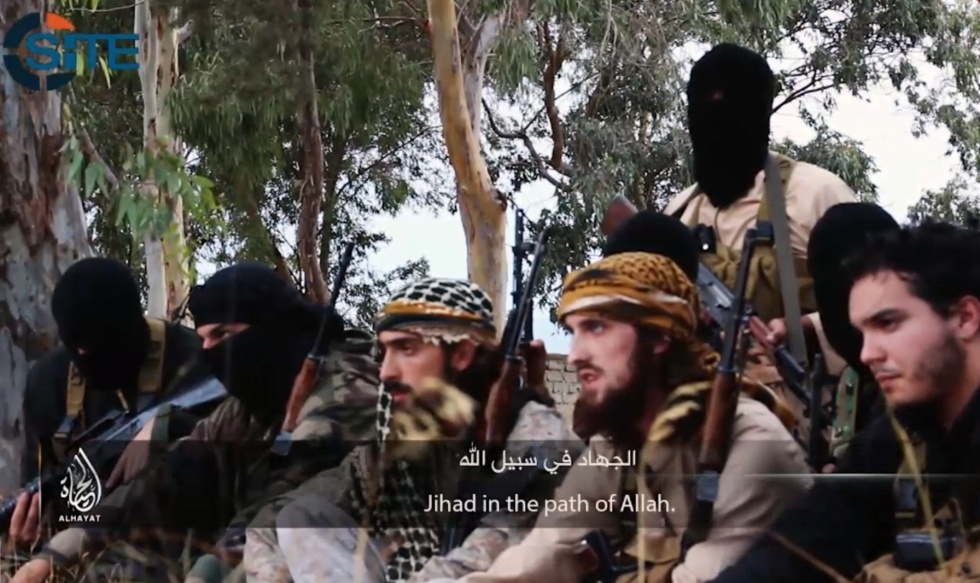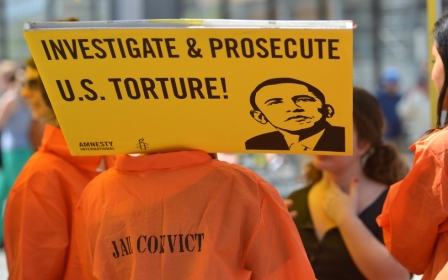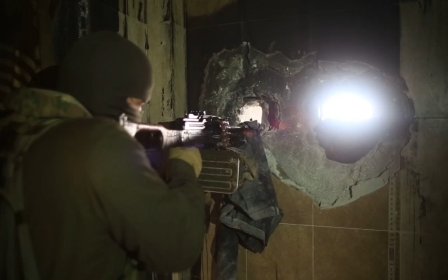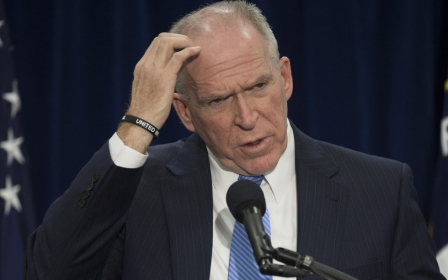Why the war on ISIS will fail

There’s a well-worn quote that is often misattributed to Einstein - the definition of insanity is doing the same thing over and over again, and expecting different results.
It doesn’t take a genius, though, to realise that this dictum applies precisely to the US-UK led coalition purportedly fighting the new brand of Islamist terrorism across Iraq and Syria.
The problem is that the coalition is doing everything it possibly can to fail: we have failed to shut down ISIS’ financial networks; we have failed to hold state-sponsors of ISIS to account; we are failing to protect civilians from the impact of indiscriminate air bombardment; and we have failed to develop a meaningful long-term strategy for the region that addresses the grievances that drive people into the arms of extremists.
These overlapping failures are not just a symptom of incompetence - though for sure, there’s no shortage of rank incompetence where foreign policy is concerned.
Let’s start with finances. It’s widely believed that ISIS’ finances are entirely self-generated through oil sales. This is only partly true. Sadly, the US-UK led coalition appears to be doing little to shut down ISIS financial networks once and for all.
In early September, the European Union’s ambassador to Iraq, Jana Hybaskova, told the EU Foreign Affairs Committee that “several EU member states have bought oil from the Islamic State (IS, formerly ISIS) terrorist organisation that has been brutally conquering large portions of Iraq and Syria,” according to Israel National News. She, however, “refused to divulge the names of the countries despite being asked numerous times”.
How could this be? As of January last year, Islamist extremists had “seized control of most of Syria’s oil and gas resources” according to the New York Times, bolstering “the fortunes of the Islamic State of Iraq and Syria, or ISIS, and the Nusra Front, both of which are offshoots of al-Qaeda.” This included government oil fields in Aleppo, Deir al-Zour and Hasaka.
Three months later, the EU voted to ease an oil embargo on Syria to allow oil to be sold on international markets from these very al-Qaeda and ISIS controlled oil fields. European companies would be permitted to buy crude oil and petroleum products from these areas, with transactions being approved by the Syrian National Coalition. Due to damaged infrastructure, oil would be trucked by road to Turkey where the nearest refineries are located.
“The logical conclusion from this craziness is that Europe will be funding al-Qaeda,” said Joshua Landis at the time, a Syria expert at the University of Oklahoma.
Now that the west has decided it needs to fight ISIS, much has been made of US airstrikes against ISIS-controlled oil refineries and pipelines in Syria. Yet the vast bulk of ISIS oil is sold unrefined through smuggling operations to the tune of millions of dollars a day, transported not by pipeline but via large convoys of trucks moving across the Syria-Turkey border, and by tankers to Jordan via Iraq’s Anbar province, to be refined locally by purchasers.
That is why the British monitoring group, Syrian Observatory for Human Rights, has criticised US-led targeting of makeshift ISIS refineries. “These so-called refineries are not a real target and they do not weaken the Islamic State as they do not have any financial value for them,” said Rami Abdelrahman of the Observatory. The targets are simply trucks carrying simple equipment to separate diesel and petrol for local use by civilians.
As one ISIS militant told the Wall Street Journal, US-led airstrikes have been “lamer than expected”. Meanwhile, ISIS oil supply convoys from Syria to Turkey continue unimpeded, and Turkish and Iraqi politicians accuse Turkey and the Kurdish Regional Government of Iraq of tacitly allowing ISIS smuggling routes.
It is now an open secret that Turkey, supposedly an ally in the US-led coalition, is directly sponsoring ISIS as part of a geopolitical gambit to crush Kurdish opposition groups. Just last week, Claudia Roth, deputy speaker of the German parliament, expressed her shock that NATO had done nothing about Turkey’s harbouring of an ISIS camp in Istanbul, facilitation of weapons transfers to the militants through its borders, and support for ISIS oil sales.
But it’s not just Turkey. Saudi Arabia, UAE, Qatar and Kuwait have all been heavily implicated in the past - according to the CIA’s own classified assessments - in financing the most virulent extremist elements of the Islamist rebel groups in Syria. Yet they did this under a covert operations programme to destabilise the Assad regime that was coordinated primarily by the US and UK.
This terror finance funnel has been conceded by many officials, including US vice president Joe Biden, General Jonathan Shaw, former assistant Chief of the UK Defence Staff, and former MI6 chief Richard Dearlove.
But US government experts on terrorism financing have highlighted the ongoing role of both Qatar and Kuwait as particularly “permissive jurisdictions” where laws against fundraising for extremists are not enforced. Indeed, informed sources in the region have told me that fundraising for ISIS is still being done openly across the Gulf monarchies at state-run mosques.
So the coalition that is currently supposed to be annihilating ISIS are the very same countries that essentially created ISIS, and some of them continue to support the network. Yet the US and UK have refused to exert any meaningful diplomatic or financial pressure whatsoever on these countries to change course.
Then, of course, there is the fact that in September, Obama decided to relax strict “near certainty” standards that had been adopted in 2013 to minimise civilian casualties. This meant that the US military could target “areas of active hostilities” indiscriminately and without concern for civilian “collateral damage,” due to their being inhabited by terrorist groups. The result has been catastrophic.
“Mass destruction of civilian homes as a result of the strikes of the Western alliance,” said one appalled anti-Assad activist. Sources on the ground amongst civilians and rebels concurred that the strikes were feeding sympathy toward ISIS and anger at the coalition. Yet despite credible reports of dozens of civilians being massacred at times in different coalition strikes, the Pentagon has simply pretended that civilians are not being killed.
Yet ISIS itself is a product of exactly the same brand of callous US-UK policies previously executed in Iraq to devastating effect. Over the last decades, a total of 2.3 million Iraqis have been killed by US and UK carpet-bombing, enforced economic strangulation, and the ensuing effects on public health over two decades: all in all, a wonderful recruiting sergeant and catalyst for sociopathic Islamist militants.
All the bombing and destruction of the “War on Terror” did little except to pave the ground for al-Qaeda to spawn an even more violent and extreme ideological Frankenstein. Thus, as the air-war on ISIS (that is in fact strengthening ISIS) has escalated, so has the mission creep of US and British troops increasingly returning to Iraq with a mandate of total impunity. US soldiers there now have immunity from prosecution for any offence - a boon that even Bush was unable to win – on the pretext of merely “advising”, “assisting” and “training”. And next year, “hundreds” of British troops will go to Iraq for the same purposes, as well as to provide a “small protection force of combat-ready soldiers”.
The war on ISIS has already been lost. As regional instability escalates predictably as a direct consequence of the US-UK led non-strategy, ISIS will become stronger, and reactionary terrorist violence against western targets will proliferate – in turn fuelling reactionary and militant responses from western foreign policy establishments.
If we want to defeat ISIS, we would do well to study the lessons of recent history and apply a drastic change of direction. This would entail serious soul-searching on our own role in fostering the regional instability that incubates extremism.
- Nafeez Ahmed PhD, is an investigative journalist, international security scholar and bestselling author who tracks what he calls the 'crisis of civilization.' He is a winner of the Project Censored Award for Outstanding Investigative Journalism for his Guardian reporting on the intersection of global ecological, energy and economic crises with regional geopolitics and conflicts. He has also written for The Independent, Sydney Morning Herald, The Age, The Scotsman, Foreign Policy, The Atlantic, Quartz, Prospect, New Statesman, Le Monde diplomatique, New Internationalist. His work on the root causes and covert operations linked to international terrorism officially contributed to the 9/11 Commission and the 7/7 Coroner’s Inquest.
The views expressed in this article belong to the author and do not necessarily reflect the editorial policy of Middle East Eye.
Photo: A group of ISIS fighters (AFP PHOTO / HO / SITE INTELLIGENCE GROUP)
New MEE newsletter: Jerusalem Dispatch
Sign up to get the latest insights and analysis on Israel-Palestine, alongside Turkey Unpacked and other MEE newsletters
Middle East Eye delivers independent and unrivalled coverage and analysis of the Middle East, North Africa and beyond. To learn more about republishing this content and the associated fees, please fill out this form. More about MEE can be found here.





